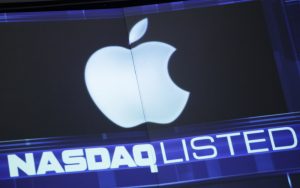 In the tech world, it is not often you hear that Blackberry is on the cutting edge of product development; at least, not anymore. While the company is certainly not out of the business, their devices have been overshadowed over the past half dozen years by the likes of Apple and Google, whose user-friendly, all-access operating systems have become the norm. Still, Blackberry was not a terrible product, and its dedicated user base helps to maintain the company’s reputation as a leader in mobile technology.
In the tech world, it is not often you hear that Blackberry is on the cutting edge of product development; at least, not anymore. While the company is certainly not out of the business, their devices have been overshadowed over the past half dozen years by the likes of Apple and Google, whose user-friendly, all-access operating systems have become the norm. Still, Blackberry was not a terrible product, and its dedicated user base helps to maintain the company’s reputation as a leader in mobile technology.
Indeed, Blackberry’s original design and concept was pretty smart. Perhaps it was just a matter of timing—and not getting far enough in front of fast consumer growth—that kept them more as an enterprise product than a consumer favorite. But it looks like Dan Dodge—who was once the head of Blackberry’s automotive software—is joining with Apple to finish what he started.
Yes, Blackberry had an automotive division—again, perhaps, its obscurity is a matter of timing—but that doesn’t matter now. What matters is that Apple, once again, is learning from Android that it is much easier to license your ideas to other companies and build alongside with them instead of trying to develop your own proprietary design. At least, this is what it appears Apple is doing with Project Titan.
This is significant, of course, because it marks the first time that Apple is diverting from its strategy of designing both hardware and software. The new idea, of course, is to bring Dodge’s expertise to Apple’s team in order to develop self-driving software the company can license to auto manufacturers.
Of course, at this time there is no scheduled release of this software but rumors, so far, point to 2020 with current reports saying 2021 would be first feasible year for a Project Titan vehicle launch. At the same time, rumors also continue to circulate that the project might still also include a fully-automatic vehicle, and not just the software that operates it. As with most things, then, time will have to tell the tale on this one.
